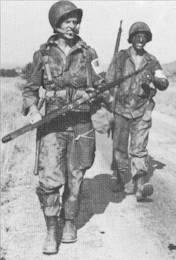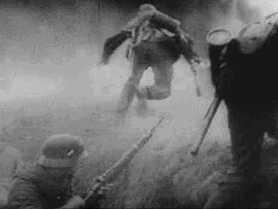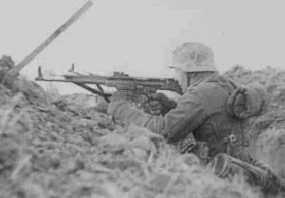




     |
Rules TidbitsRules Tidbits are a few clarifications and a collection of rules tweaks relevant for "serious" Risus games I wrote to myself while trying to understand some of the gold that is poured on the very recommendable Risus Mailing List (and now also on the likewise recommendable RisusTalk Mailing List). Graduated DamageYou can graduate damage results by using the attack/defend roll ratio:
Or:
In my "Hedgerow Hell" I let morale take damage unless for great rolls in which case also physical damage ocurred: Attacker uses role cliché against one of the defenders morale related clichés.
VehiclesVehicles are given an armor cliché rating and a weapon bonus dice rating for each weapon system. Of course you could detail it further with clichés for armor, each weapon, speed, maneuverability. You could even detail the armor into front armor, side armor and back armor. But after all this is Risus so why should you unless you really need it. The GM will be smart enough (he's a Risus GM ain't he) to reward attacks against the tracks or back of a tank, without the need of detailed rules for every little excruciating detail. When firing from the vehicle the gunner uses his own gunner cliché with any available bonus dice from the vehicle weapon used. Damage however is taken from the vehicle dice until depleted at which point the vehicle is damaged and the character starts taking damage. An alternative approach would be to consider the vehicle and its crew as a Risus team and so leaving it up to the crew to decide whether the vehicle or one of the crew members should take the damage inflicted. ArmorArmor is given a cliché rating. Personal armor, such as a flak jacket, vehicle armor or building armor, such as a bunker, all work the same way: The armor will suffer damage until depleted before the character covered by it starts loosing dice. An alternative approach would be to consider the armor and its user/users as a Risus team and so leaving it up to the user/users to decide whether the armor or the user/one of the users should take the damage inflicted. Bonus Dice GearWhat do you do when the other guy hauls out his pea shooter(3) against your rocket launcher(3)? Well nothing if you want the original wacky flavor of Risus: his pea shooter is just as deadly as your rocket launcher. But what if your game calls for a more realistic gameplay? The answer is... bonus dice! Yup you simply decide, well the game master does really, that your gear is not ordinary gear when compared to ordinary standard issue gear. Your gear is bonus dice gear!. So you get to roll one or more bonus dice along with your ordinary dice. The GM will usually have weapon bonus dice values set up before mission start but any rock, stick or screwdriver a character picks up during play could easily be appointed bonus dice on the go. Note that strictly speaking this is a deviation from the standard bonus dice gear definition where such gear is not the standard issued gear your character starts out with but special gear aquired along the way in the adventure. But for "serious" games bonus dice is just the right tool to use to differentiate weapons. Alternatively you could give the bonus in form of a change of dice type. So you might roll d8's or d10's instead of d6's. Ranged fireHow do you resolve ranged fire in Risus? If it is a firefight it would of course be Risus combat. If it is one way fire you can use either:
Target numberTarget numbers are best for situations where the target is not involved in your task. E.g. You are an unspotted sniper and the target sits quietly eating his cupcake enjoying a lovely day. He has no chance of avoiding your shot, it is all up to you and your trusty M21. Single action conflictSingle action conflict involves your target. He is given a chance to avoid your shot. E.g. While eating his cupcake he catches a glimpse of the sun reflecting in the metallic thermos you thought looked so cool in the store. He knows he is a very important person likely to be targeted and gets the idea that he should probably finish his cupcake and dive for cover. So it is you against him, but not a combat, it is a single action conflict. Will your shot hit him or not. In my "Hedgerow Hell" addon I make it a single action conflict between the shooters fire and the targets morale (one of his appropriate morale related clichés). If the shooter wins the target looses some of his morale. If the target wins he manages to keep his spirit high. Best FaceFor serious games where less difference between cliché levels are desirable you can instead of adding up the total rolled in combat instead use the the highest die rolled. You won't get as much math training though. Teams also get stronger and use of funky dice too (S. John Ross in message 1095 on the Risus ML). |
|
|
top |